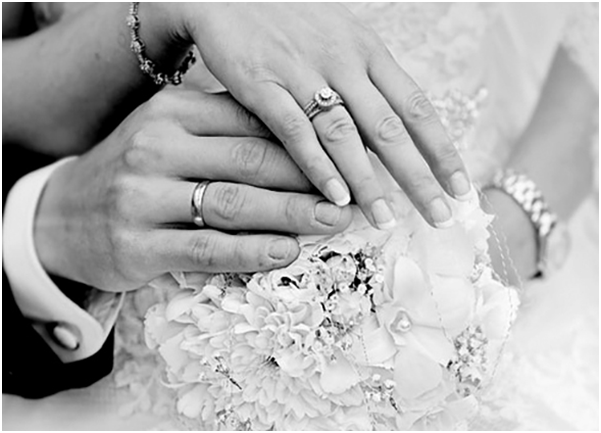With smiles on the faces of parents, friends and all well-wishers, the couple, looking into each other’s eyes filled with so much emotion, getting kind of teary, they each take turns to boldly and happily say “I do”, knowing that, they have the blessings of all they both hold dear-their parents.
You may hate the thought, you may be annoyed by it, but one cannot downplay the important role parents’ play when their children are about to take that walk on the aisle.
Many situations before the “I do” is uttered, involve parents. In this piece, I categorize some instances where parental roles play out significantly.
The arranged marriage
Holding the view that, marriage is another rite of passage they must help their children transit through, some parents arrange marriages for their children. Often because, parents feel they know what is best for them.
Some Mums and Dads even plan the wedding and all the ‘about to weds’ have to do is show up. But, some would-be couple happily oblige for fear of making any lifelong mistakes. For some, arranged marriages work perfectly.
However, for others, especially the ladies, the moments before saying ‘I do’ if one finds herself in this category, is characterized by a downcast feeling and a heavy hearted murmur of the otherwise love-inspired words “I do”.
The personal choice
In most cases, let’s say, 90% of the time, couples find themselves in this category.
Nonetheless, parents observe the choice of their children for a while before giving the nod. Some even go ahead to arrange an interview session with the prospective spouse before giving their blessings.
Clearly, such efforts are aimed at ensuring that the ‘children’ do not make any mistakes that they would regret for the rest of their lives. During such sessions, parents look out for ‘deal breakers’ their offspring may have ignored or overlooked.
For someone like Edem, a student, parental involvement in saying those fateful words ‘I do’, should be minimal. According to him, he would rather have faith in the training he gave his child, than interfere with the ‘I do’ decision making process.
But what if parents disapprove? Some say the only disapprovals permissible are those based on blood related issues or diseases. Other than that, parents ought to ride along with the decision of their children with hopes that, the right choice has been made.
In Ghana, most parents however consider their involvement as critical. It goes without saying. It is a necessary evil if you like. They have been around long enough and made costly mistakes they would not want their ‘children’ to repeat. So, if they see those red flags waving in a prospective spouse, then one should expect an emphatic no.
A recalcitrant ‘child’ in this regard, stands the risk of being disowned, if he or she proceeds to tie the knot with their sweethearts.
For those who believe the choice is theirs to make, parents are expected to serve as just an advisory “board” in this endeavour. What they expect from ‘Papa’ and ‘Mame’ is, “I think this partner is …but if that’s what you want, you have my blessings” that’s all.
Such parents subsequently begin to open up and try to see what their children can see that they don’t see. Thus it is a lot of smiles with a bit of “I still have my eyes on you.”
Either way, being allowed to make that lifelong choice on your own, doesn’t prevent parents from being involved in the holy matrimony, because without their advice and blessing, it is believed that the marriage would face challenges.
On the flip side
Much as we extol the benefits of parental involvement in getting to say “I do”, the negative emotions that flow from them, if they disapprove, is why some people refuse to involve their parents. For those who do, they tend to care less about what their parents have to say.
Most parents base their dislike for the partners of their offsprings on sentimental issues like tribe, wealth, class and religion. These sentiments are usually a result of prevailing generational grudges.
Some parents also expect their children to contract marriages that would benefit them (Mum and Dad). Hence, they frustrate the would-be partner if he or she is not their choice. This is done by exhibiting very disappointing behaviors.
Financial Involvement of parents
Whether they agree to the choice of spouse or not, most parents contribute to the financial implications of their children’s marriages.
In the Ghanaian society, parents who endorse the prospective spouse consider the occasion more of their wedding than that of the love birds. In such cases, they offer financial help and contribute greatly to organizing the entire ceremony.
For the very rich and powerful, it is to show that their children are a physical representation of themselves and so nothing, but the best must be organized for them.
So you can hate or love it, you may have your reservations and your perceptions, but if you are Ghanaian and you live in Ghana, even if you live abroad, know it and believe that, your parents will advise, suggest probably even want to take over and dictate what your preferences would be.
What is important is that on that fateful day, while standing before the officiant, hand in hand with your better half, you know that you have the blessing of those who matter most – Mum and Dad. And they are happy for you.
Then you comfortably take a breath, inhale, exhale, you open those eyes and look into that of your partner and in all confidence and love, you seal your decision with the words “I do.”
And live happily thereafter. Hopefully.

